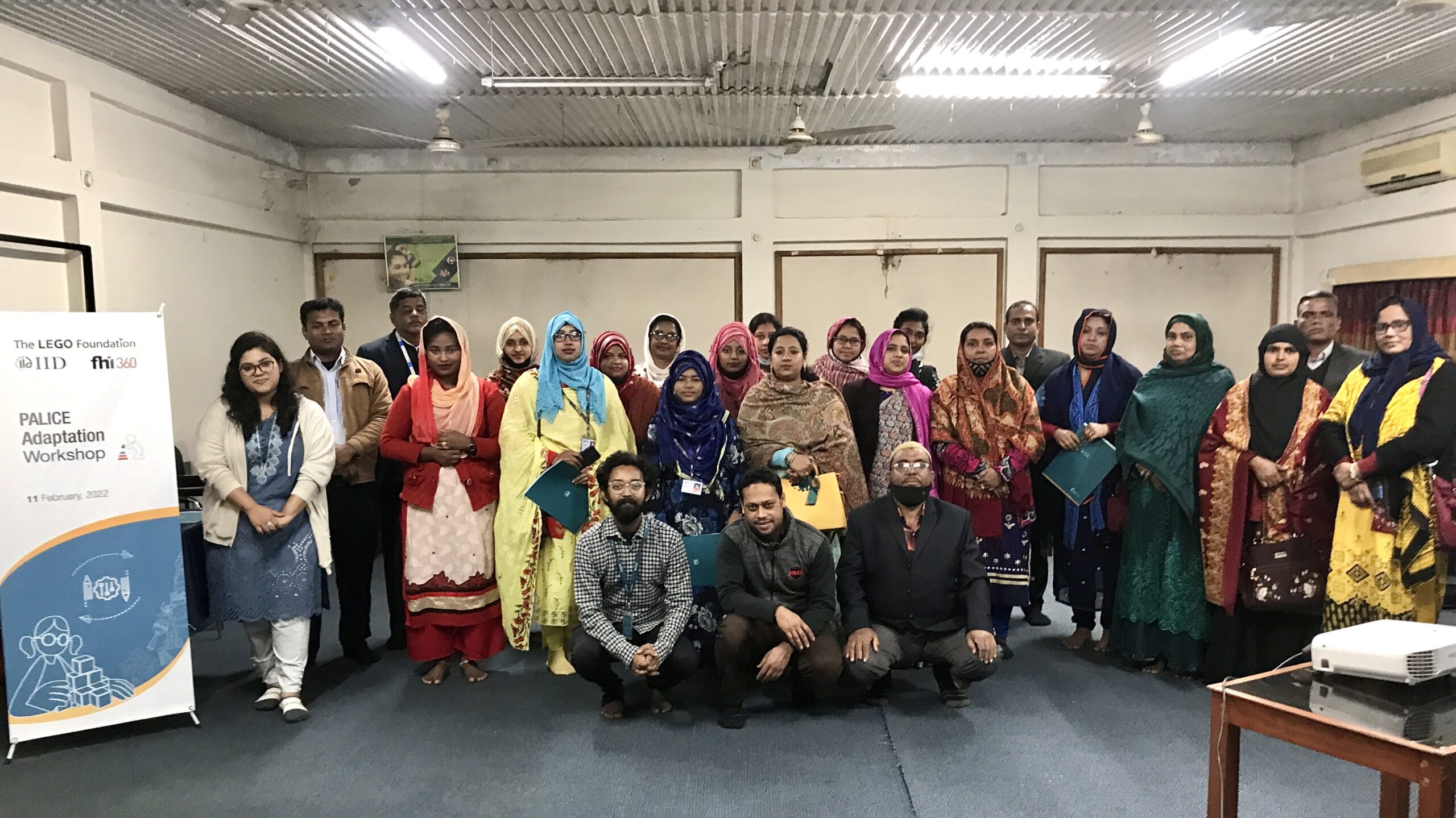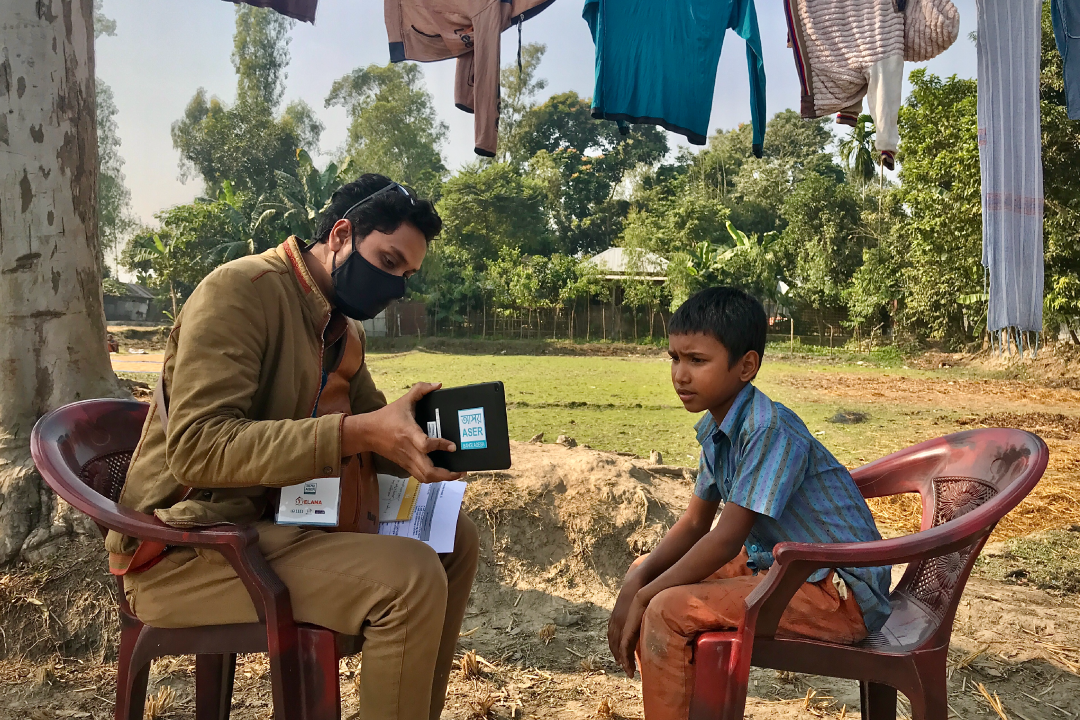As part of the PALICE (Play and Learning in Children’s Eyes) initiative, IID – in collaboration with FHI 360 – is developing a Formative Observation and Reflective Assessment (FORA) tool that can be utilized by educators to assess whether children in classrooms are learning through play (LtP). As the tool is being developed in collaboration with a team of global education experts, it is crucial to ensure that the tool is contextually appropriate for Bangladeshi educators – before finalizing for implementation.
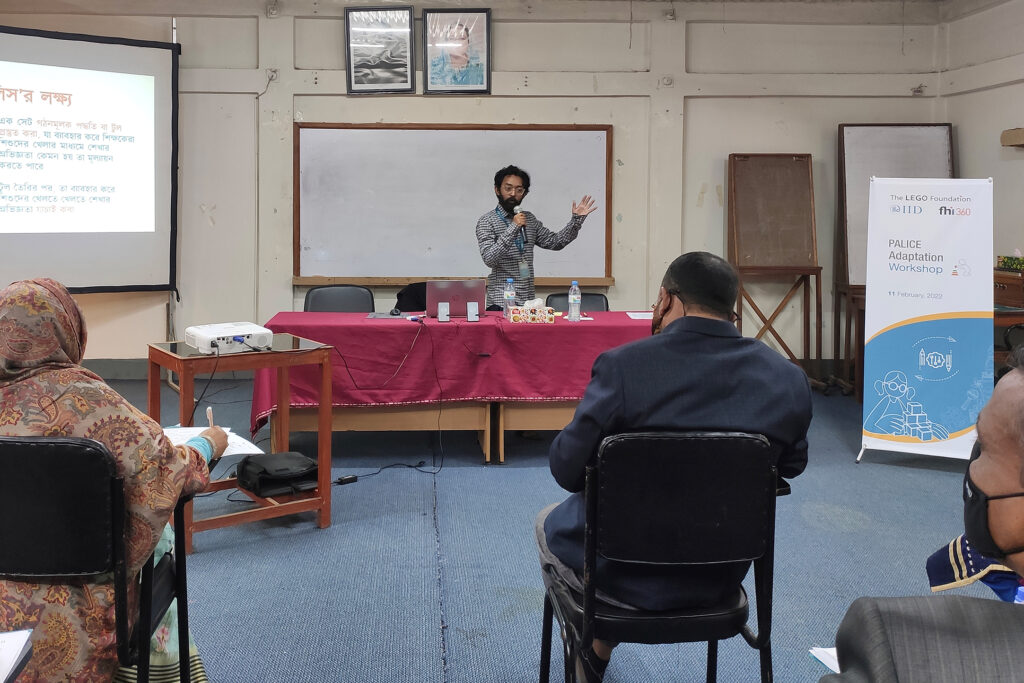
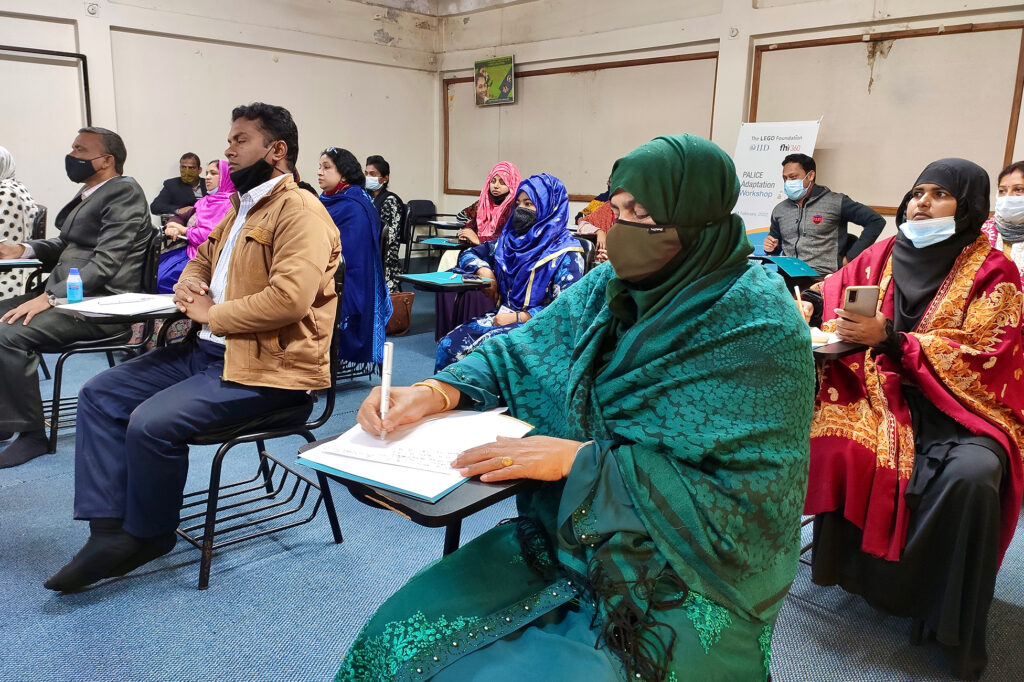
With this aim, IID’s education unit organized a day-long ‘Adaptation Workshop’ in the district of Gaibandha on 11 February 2022, to obtain feedback and reflection on the FORA tool from educators with prior experience and/or training in LtP practice in the classroom with the children of 3-12 years of age range.
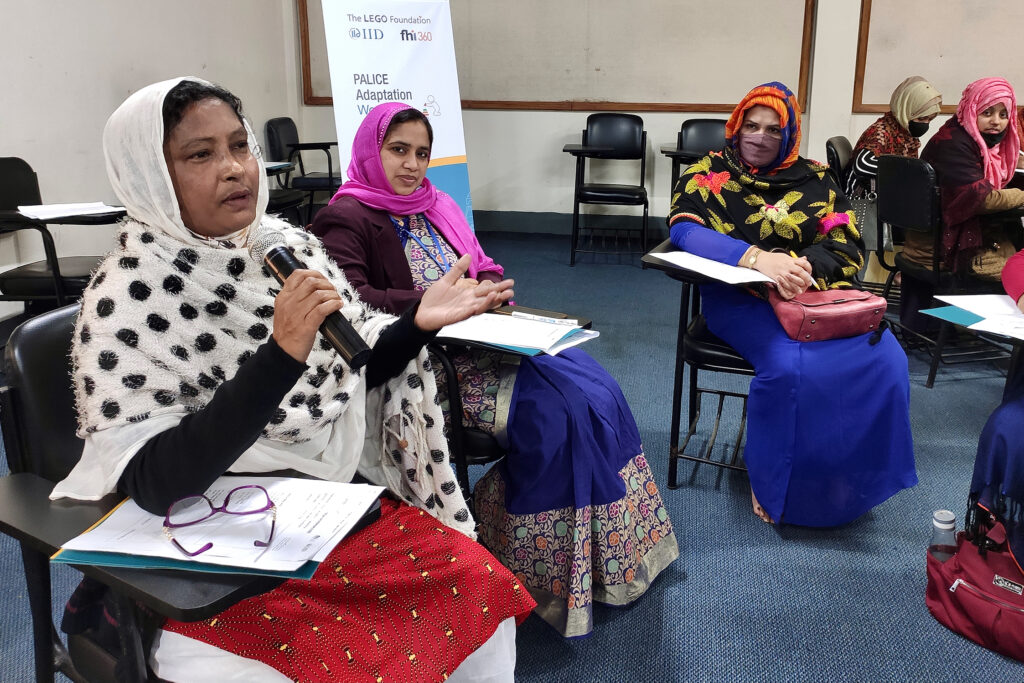
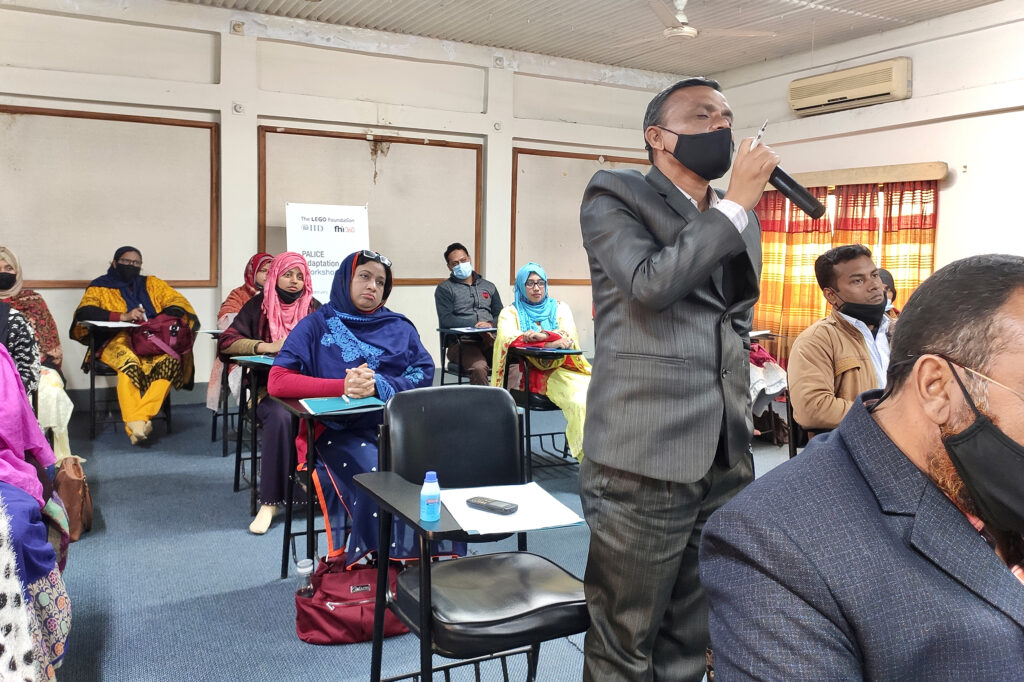
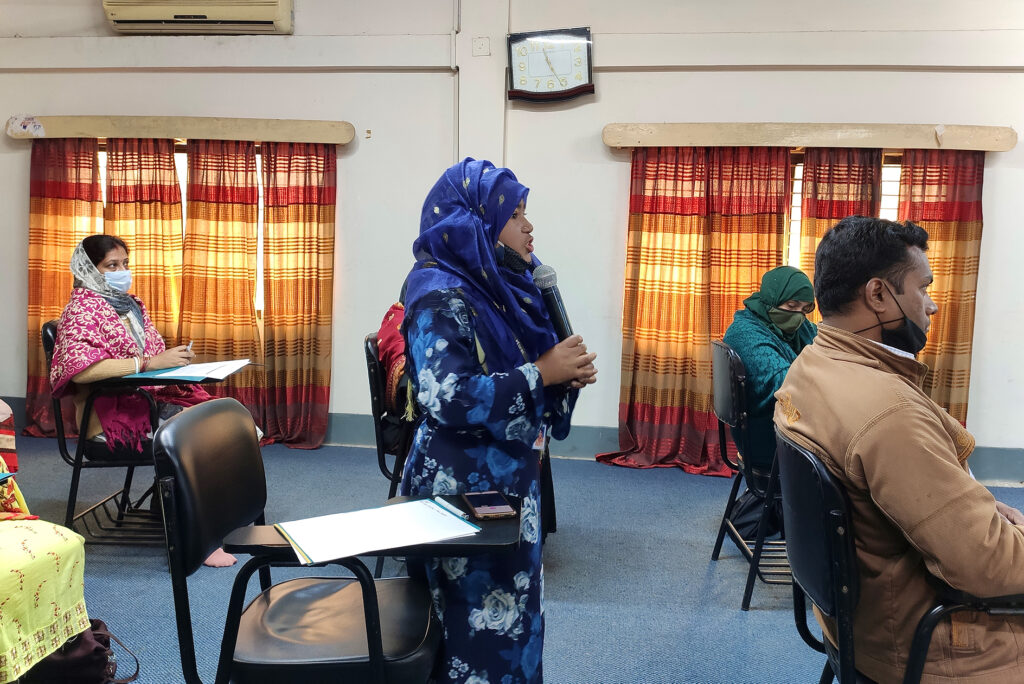
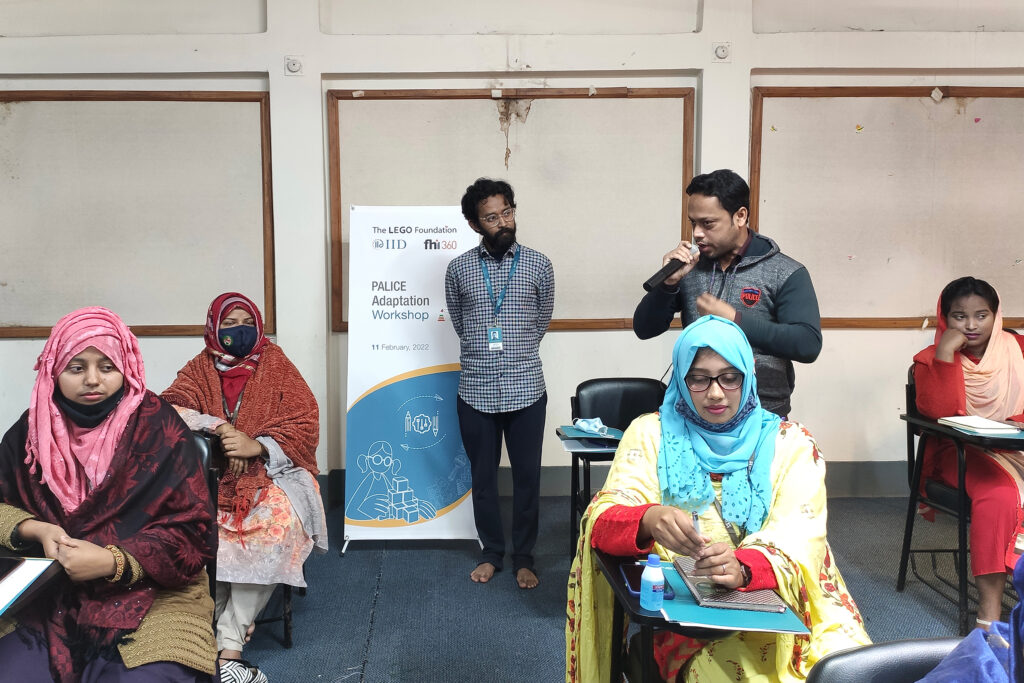
Facilitated by Kazi Ferdous Pavel, the education lead at IID, the workshop was divided into two main segments. In the first segment, key components of LtP practices were discussed in depth. The educators were introduced to the spectrum of facilitation of LtP (Free Play, Guided Play, and Teacher-Directed Play) and the characteristics of LtP. During this segment, the participants also shared their experience of LtP from their classrooms. This lively discussion enabled the attending educators to gain a broad level understanding of the mechanism behind the development of the FORA tool.
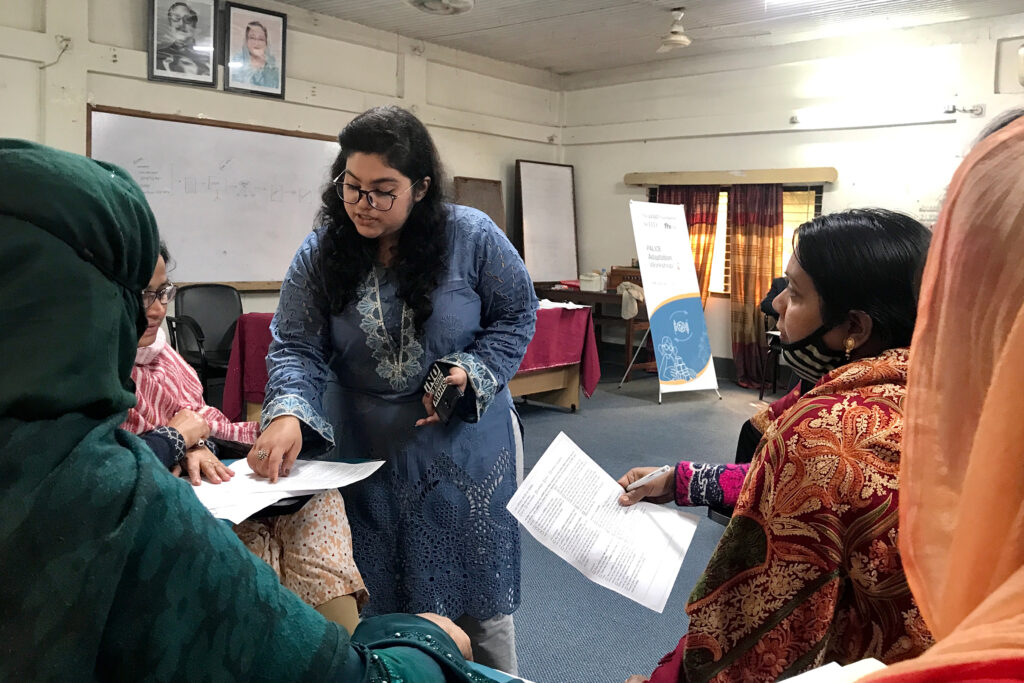
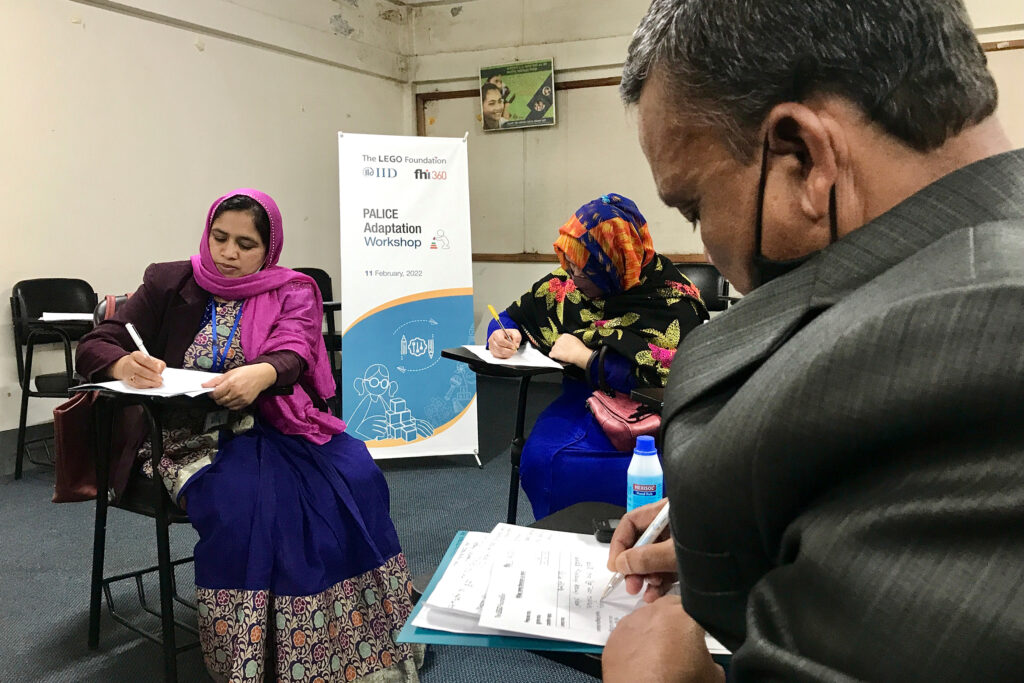
The final segment of the workshop was designed to collect feedback on the behavioral items in the FORA tool by collecting data directly from the educators. To do this, first, the educators were shown pre-recorded videos of play of all three levels of facilitation and asked to assess the play activities in groups for all five play characteristics using the developed FORA tool. After the educators recorded their responses in the FORA, they were asked to provide their feedback on the tool, i.e., the behaviors that were clear and easy to assess, the behaviors that were difficult to assess, and any behaviors that they did not understand or found confusing.
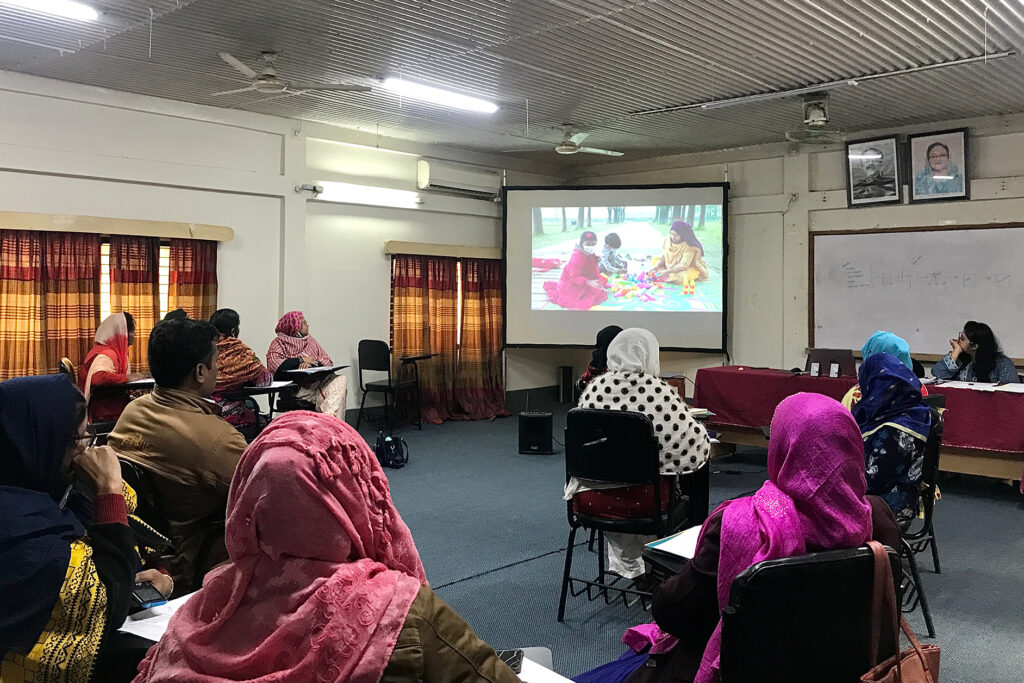
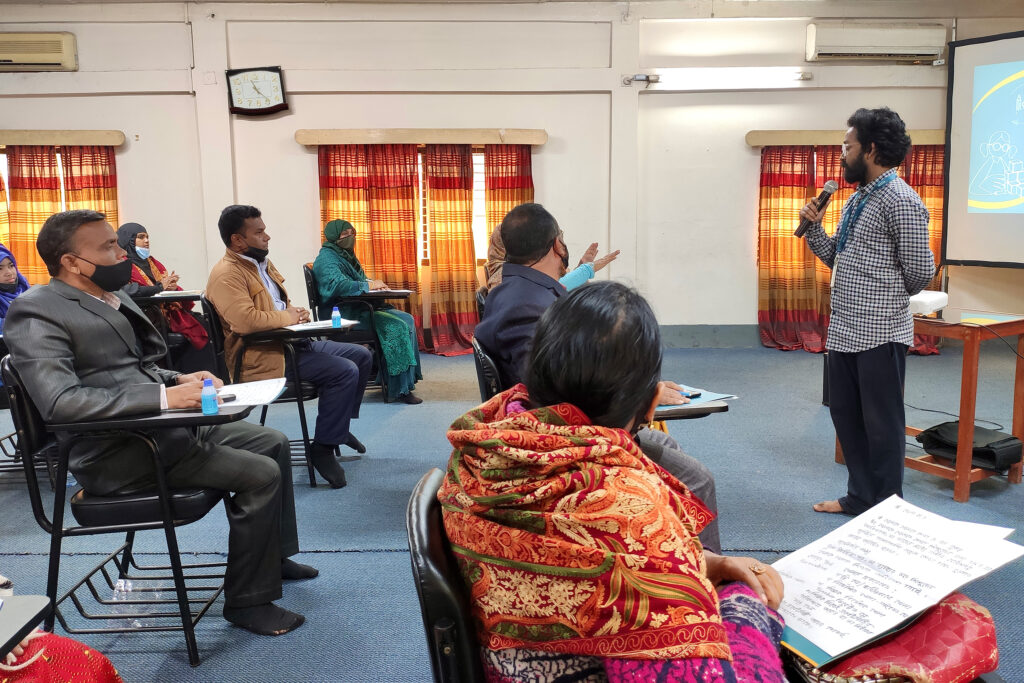
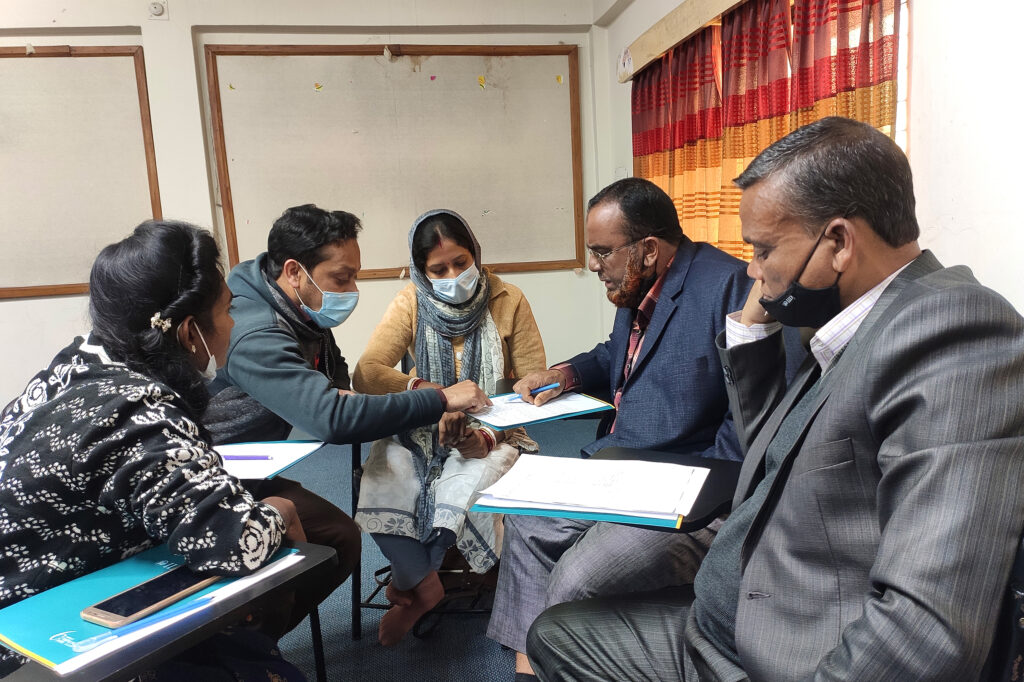
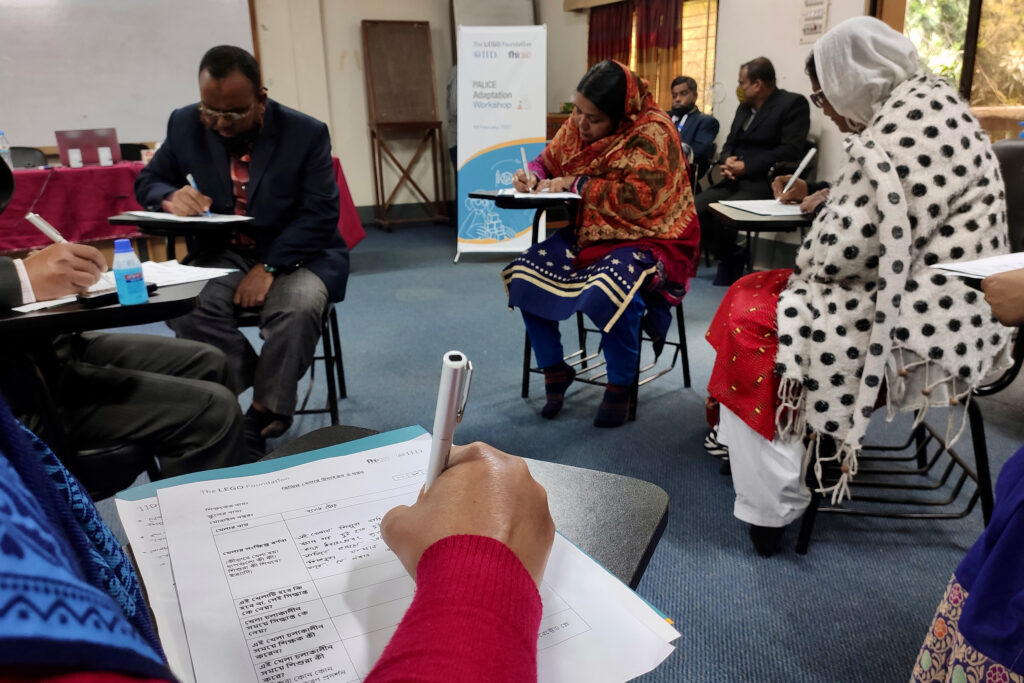
As the FORA tool is being developed for the educators and ultimately will be used by the educators, getting their direct feedback was essential for the finalization of the tool. The feedback acquired from the educators at the workshop will be utilized for further refinement of the FORA tool.
Supported by The LEGO Foundation, the workshop brought together a total of 20 educators. The PALICE initiative will undergo piloting and validation in Bangladesh, Colombia, and Uganda.
